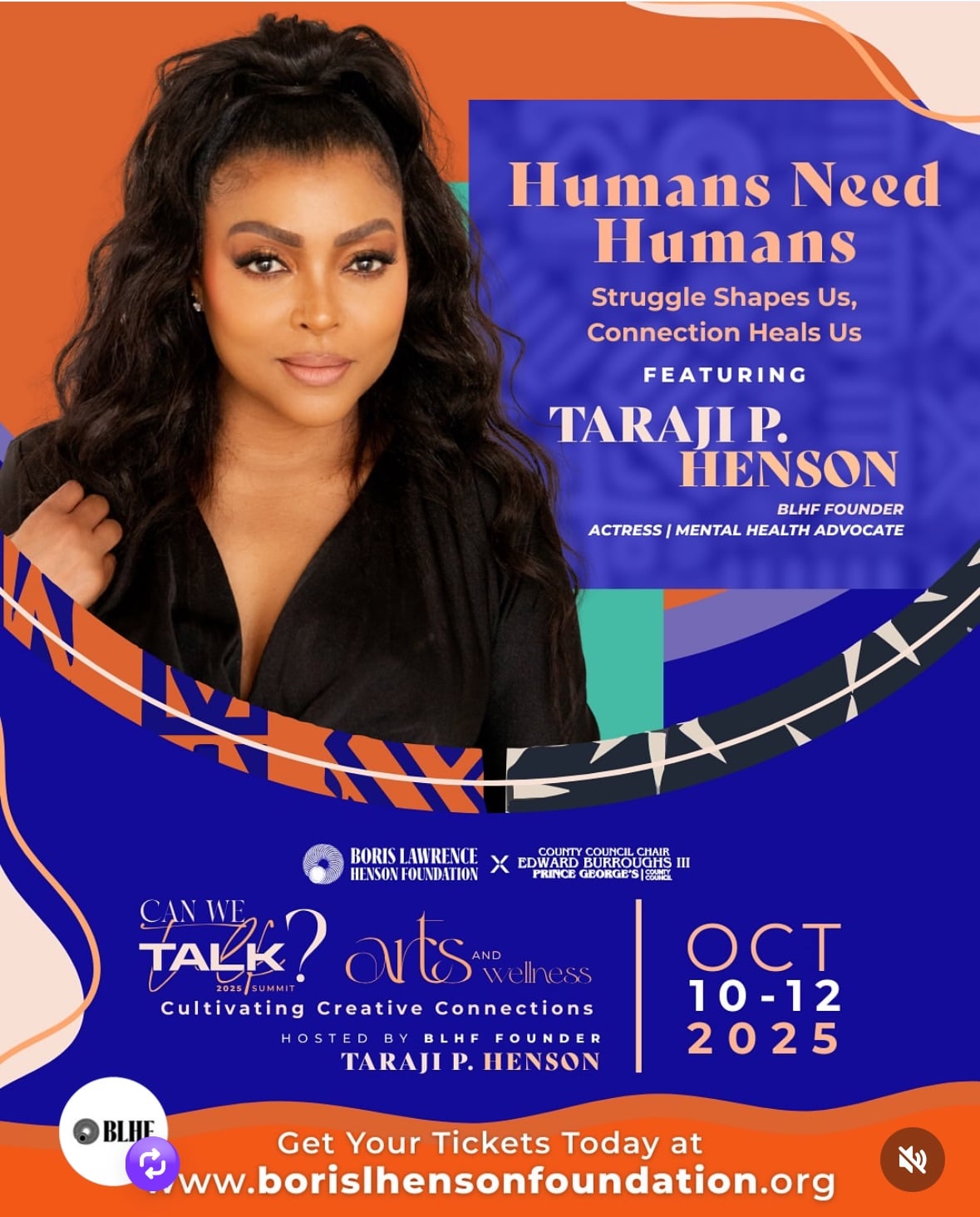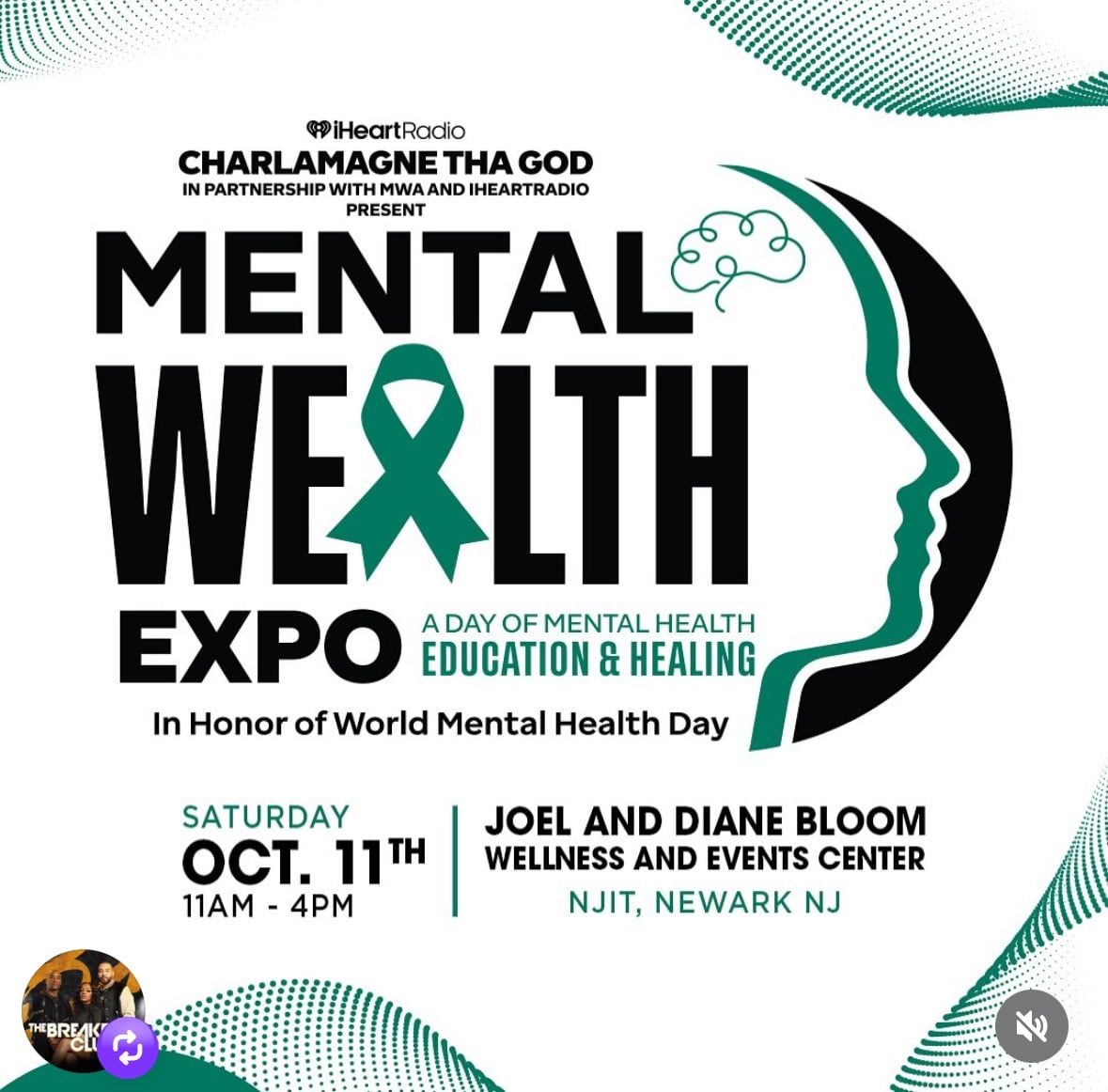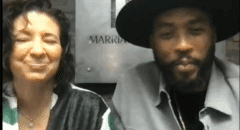
For years, World Mental Health Day has been about raising awareness, breaking stigma, sharing stats, and posting quotes. But this year, it’s less about talking and more about doing.
“Awareness” alone isn’t cutting it. For Black America, mental health isn’t a trending topic, it’s survival. It’s showing up for work when you’re running on empty, caring for everyone but yourself, and still finding ways to keep going. It’s essential, not extra.
The 2025 theme, “Mental Health and Humanitarian Emergencies,” focuses on how constant crisis, from war zones to natural disasters, takes a toll on emotional well-being. Globally, one in five people in crisis develop anxiety, depression, or PTSD. But for many of us, you don’t need a war or a hurricane to feel like you’re in survival mode. Between racial trauma, financial stress, and just trying to stay afloat, “emergency” can feel like a permanent state.
That’s why people like Taraji P. Henson and Charlamagne tha God aren’t waiting around for awareness posts or soundbites. They’re doing the work. Both are using their platforms to make mental health care more real, more relatable, and more accessible for our community.

Taraji P. Henson’s “Can We Talk?” Is More Than a Summit, It’s a Movement
When Taraji P. Henson speaks about mental health, she’s not performing. She’s living it. The Empire star turned advocate created the Boris Lawrence Henson Foundation (BLHF) to honor her late father’s struggle with mental health and to push back against the stigma that still lingers in our community.
This week, Taraji is hosting the 5th Annual “Can We Talk?” Arts and Wellness Summit (October 10–12, 2025) at National Harbor. The three-day experience mixes art, culture, and healing with a sense of celebration. It’s not a stuffy conference. It feels like a cultural homecoming with storytelling, performances, and conversations that remind you healing can be joyful too.
“We’re creating spaces that honor safety, belonging, and dignity,” Taraji says. “Where people feel seen, empowered to heal, and build tables of joy.”
That’s exactly what BLHF has done. Taraji is helping people see that vulnerability can be strength and that therapy can be something our culture embraces, not hides from.
 Charlamagne tha God Is Turning Mental Health Into Mental Wealth
Charlamagne tha God Is Turning Mental Health Into Mental Wealth
On the East Coast, Charlamagne tha God is keeping the conversation just as real, especially for Black men who are too often told to “man up” instead of speak up.
Through his Mental Wealth Alliance, Charlamagne is helping reframe therapy as something practical and powerful. He compares it to “decluttering your closet,” a reminder that unpacking your trauma doesn’t make you weak, it frees you up.
This weekend, he’s hosting the 5th Annual Mental Wealth Expo (October 11, 2025) at the New Jersey Institute of Technology in Newark. The free event will feature therapists, educators, and community leaders who look like us and speak our language. The mission is to teach, treat, and train while connecting thousands of people with tools that make care easier to access.
“This isn’t just about talking about mental health,” Charlamagne says. “It’s about transforming how we experience it together.”
Making Healing Real
What Taraji and Charlamagne are proving is that Black mental health care doesn’t have to feel unreachable. It just has to feel real. They’re showing that healing starts where you are, no platform required.
Here’s how to bring that same energy into your own life:
1. Start the Conversation
You don’t need perfect words. Just start talking. Whether it’s with a friend, a pastor, or a therapist, being honest about what you feel is the first step to releasing it. Silence keeps stigma alive, conversation breaks it.
2. Find Support That Fits You
Look for resources that understand your world. That could mean a Black therapist, a support group at church, or organizations like the Boris Lawrence Henson Foundation or the Mental Wealth Alliance. The right help is out there, you just need to find the version that feels like home.
3. Protect Your Peace
Therapy is one piece, but small daily habits matter too. Journal. Set boundaries. Log off. Take a walk. Pray. Meditate. Every small step toward calm is an act of care.
4. Make Mental Health a Family Thing
When you talk about mental health at home, you shift the culture. Check in on your kids, your parents, your partner. Share what you learn. One honest conversation can change the way your family approaches care.
5. Give Yourself Grace
Healing doesn’t happen overnight. You’ll have good days and tough days. What matters is showing up for yourself, again and again.
This World Mental Health Day, one message stands out: Black mental health isn’t optional, it’s essential.
And thanks to voices like Taraji and Charlamagne, we’re not just aware anymore. We’re taking action, building community, and making healing something everyone can reach.






